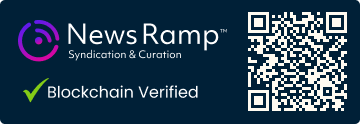Curated News
By: NewsRamp Editorial Staff
August 15, 2024
CSD Awarded $250,000 to Improve Virtual Healthcare Access for Deaf Community
TLDR
- CSD has been awarded $250,000 for a project focused on improving virtual healthcare for the Deaf community, providing a competitive advantage in healthcare innovation.
- The project will run from November 1, 2024 through October 31, 2026 and will recruit stakeholders to capture diverse Deaf patient experiences with virtual healthcare platforms.
- This project aims to advance equitable care and decision-making among Deaf patients, aligning with patient-centric outcomes and preferences, making tomorrow better than today.
- The Deaf Patient Coalition will identify and capture diverse Deaf patient experiences with virtual healthcare platforms, driving community-centered change for improved health outcomes.
Impact - Why it Matters
This news matters as it addresses the lack of access and equitable care for the Deaf community in virtual healthcare platforms. The project aims to empower the Deaf community by incorporating diverse lived experiences to drive community-centered change for improved health outcomes.
Summary
Communication Service for the Deaf, Inc. (CSD) has been awarded $250,000 through the Eugene Washington PCORI Engagement Award Program, an initiative of the Patient-Centered Outcomes Research Institute (PCORI). The funding will support a two-year project titled 'Building Capacity for Deaf American Sign Language Users in Virtual Healthcare PCOR/CER.' The COVID-19 pandemic has significantly accelerated the adoption of telemedicine in healthcare yet little is known about best practices for the Deaf community. Deaf individuals who use American Sign Language (ASL) face communication and health literacy challenges, making virtual healthcare services potentially inaccessible and inequitable. CSD’s health and patient advocacy division, DeafHealth, will recruit a diverse group of stakeholders to form a national Deaf Patient Coalition. This coalition will identify and capture diverse Deaf patient experiences with virtual healthcare platforms to help shape future patient-centered outcomes research (PCOR) and comparative clinical effectiveness research (CER) focused on healthcare virtual platforms for the Deaf community. By collaborating with academic institutions, researchers, and patient communities, this groundbreaking project aims to advance equitable care and decision-making among Deaf patients that aligns with patient-centric outcomes and preferences. The project will be directed by project lead Allysa Dittmar, MHS, Vice President of DeafHealth. Rochester Institute of Technology (RIT), under the leadership of Dr. Tiffany Panko, executive director of the Deaf Health Care & Biomedical Science Hub and director of the Deaf Health Laboratory at RIT’s National Technical Institute for the Deaf will support the project. By incorporating diverse lived Deaf patient experiences, this project empowers this historically marginalized community with the resources and PCOR/CER knowledge necessary to drive community-centered change for improved health outcomes, aligning with PCORI’s mission to empower patients and others. In the long term, the project provides an opportunity to propose future PCOR/CER studies that align with the community’s identified priorities regarding virtual healthcare platforms for the Deaf community. PCORI is an independent, nonprofit organization authorized by Congress with a mission to fund patient-centered comparative clinical effectiveness research that provides patients, their caregivers, and clinicians with the evidence-based information they need to make better informed health and healthcare decisions. For more information on the PCORI Engagement Award and CSD's funded project, visit here. Communication Service for the Deaf (CSD) is the largest Deaf-led social impact organization in the world. For more than four decades, CSD has been a leader in creating and providing accessible and innovative solutions for the Deaf community. Through CSD's patient and health advocacy division, DeafHealth focuses on improving health outcomes for deaf and hard-of-hearing patients through state-wide initiatives by providing culturally and linguistically accessible health information, resources, and services. For more information, please visit CSD and follow CSD on Facebook, Twitter, Instagram, and LinkedIn. Established by the U.S. Congress in 1965, the National Technical Institute for the Deaf is the first and largest technological college in the world for deaf and hard-of-hearing students. NTID offers associate degree programs for deaf and hard-of-hearing students and provides support and access services for deaf and hard-of-hearing students who study in the other eight colleges of Rochester Institute of Technology. NTID also offers certificate programs in educational, deaf, healthcare, trilingual, and signed language translation interpretation, as well as bachelor’s degree programs in sign language interpreting and community development and leadership, and master’s degrees in secondary education and healthcare interpretation. Deaf and hard-of-hearing students come from all over the United States and around the world to take advantage of the opportunities available to them at RIT/NTID. Visit RIT/NTID and follow on Facebook, Twitter, Instagram, and LinkedIn.
Source Statement
This curated news summary relied on content disributed by News Direct. Read the original source here, CSD Awarded $250,000 to Improve Virtual Healthcare Access for Deaf Community
